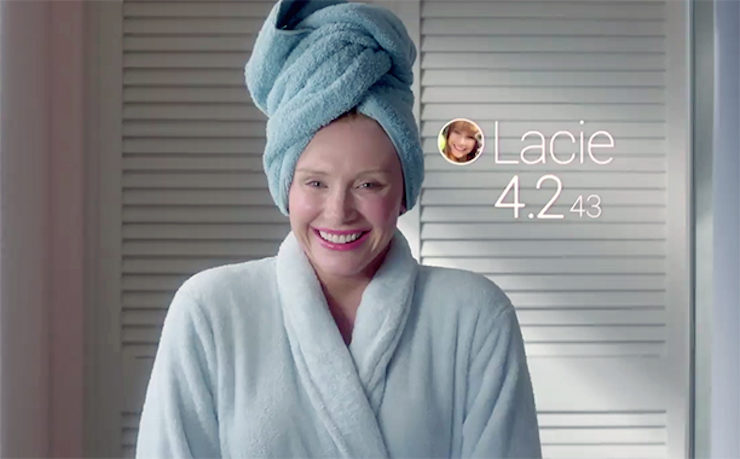There are so many different roles a person can fill online. You can be a teacher, a customer, a friend and an enemy. Since the online world is built with the capabilities for you to be anonymous, your identity is not fixed meaning you can be anyone or anything you want.
This idea reminded me of the Black Mirror episode ‘Nosedive.’ The main character for this episode has a 4.2 ranking which works in a similar way to one’s Uber rating in real life. However, in this ‘world’ there are direct consequences for you depending on your ranking. You cannot live in certain areas, enter certain buildings, and access certain transport. However, the worst of all is the negative social impact a low ranking can have. People with low rankings are treated as subhuman, social outcasts essentially. A world like this means every social interaction is a performance, no one can be honest out of fear of being rated low and therefore going down in the ranks.

I rewatched this episode to see if my interpretation of the episode has changed since the last time I watched it. I still view the episode the same way, however, it did make me think about the role I play when I use Uber. I have the potential to make or break a person’s life by the rating I give at the end of the ride. If I deem the ride unsatisfactory that person will get a low rating, and the lower it gets the less jobs they get meaning I could be the reason someone loses their job. This also works the other way, a driver can give the passenger a rating, if a passenger reaches below 4.6, drivers can refuse to pick them up. This could leave a vulnerable person in a dangerous situation, worst case scenario leading to their death. Though a rare, extreme scenario, this is possible with the gravitas placed upon Uber ratings. Here humans play the role of customer as well as worker, but a customer whose opinion has great influence on your career.
Another role we play online is the role of teacher. Many people take it upon themselves to inform the masses on subjects they believe they know a lot about or enough about to be educating others. This can range from a ‘Tiktok Teacher,’ usually an individual who shares facts about information linked to their profession that most customers or clients don’t know which can be useful to know. At the other end on the spectrum, it could be a person who just shares their opinions as fact. Usually in response to a trending topic on social media, for example the Door Dash worker who was fired from her job a few days ago. People behave like they have all the information and are therefore qualified to either justify her dismissal or advocate on her behalf. Misinformation is then spread, and no one has the right information about what actually happened and why she was fired. This highlights that not everyone should be playing the teacher role online unless they actually know what they’re talking about.
The final role many people play online is that of a bully. Trolling, though the term isn’t used as much now, is defined by Google as ‘[to] make a deliberately offensive or provocative online post with the aim of upsetting someone or eliciting an angry response from them.’ This is not the only way to be a bully online, posting or liking hate comments or tweets is another way. Even though you may not have known the comment was crafted with the purpose of offending, by liking it or reposting it, interacting with the comment in any way can add to the ‘hate’ the person is receiving.
To summarise, we behave in very different ways online, playing different characters depending on the situation and how we feel. Our ability to swap between different roles, much like in real life highlights the importance of fully considering the consequences of our actions when we’re online, as one simple action can have dire consequences for the recipient.



I think this is a very interesting view and I liked that you used the Nosedive episode to explain the point you’re making. It’s crazy to see an episode like this as entertainment, but it is actually applicable in real life as you showed with how uber works.
The problem is sadly not always this easy to spot. People in real life do not leave reviews and add stars to them to when meeting someone new, but instead talk to their friends about how they didn’t like a person or something like that, which still leads to the same effect but on a smaller scale. I think that when you compare it to the digital world, it becomes more clear that people don’t like someone else because of the anonymity they have and how easy it then becomes to hate on someone else and their (online) presence. Which makes this problem much more real in the current world, which why i think it is good to not pay to much mind to someone else says about you on the internet.
Really reflective take on how many “roles” we slip into online without even noticing. I loooved the Nosedive comparison. Ratings systems really do blur the line between feedback and power, and it’s unsettling how much impact a single tap can have on someone. I also like how you highlight the “teacher” role and how easy it is for misinformation to spread when people speak with confidence instead of knowledge.
And of course, the bully role is sadly very real and often amplified by the anonymity the internet gives us… All in all, really great blog, I really enjoy your writing style!